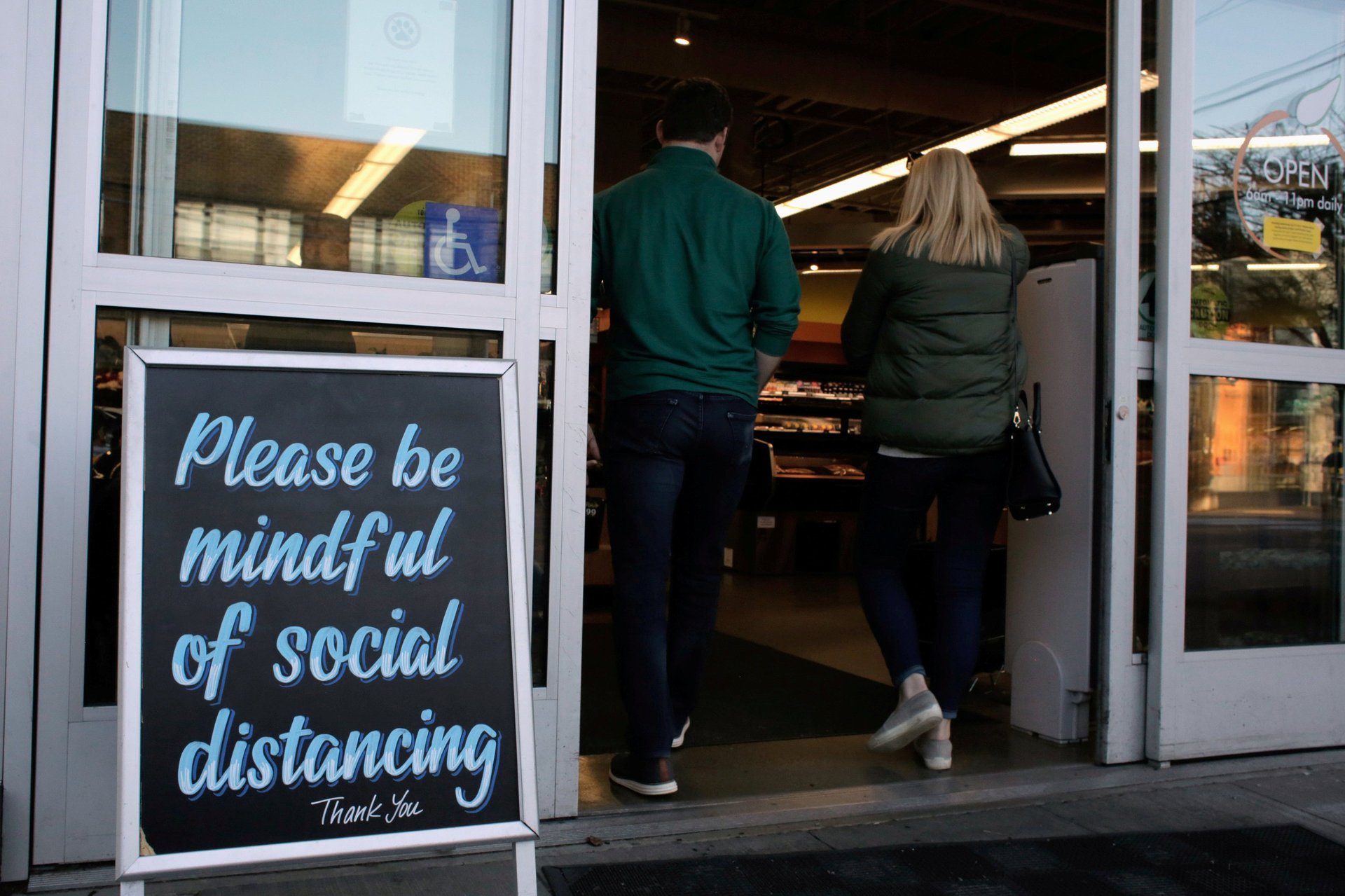Psychology can help us navigate the post-lockdown economy
The war against the novel coronavirus may be far from over, but stay-at-home orders are lifting around the world.


The war against the novel coronavirus may be far from over, but stay-at-home orders are lifting around the world.
So far, those of us who could afford to have mostly stayed home. With many offices, shops, and parks closed, it wasn’t a difficult decision to make. But as countries slowly reopen, we will all have to make individual choices. Are we comfortable going to the office, or taking public transport to get there? Will we visit friends, and if so, should we wear masks? Can our kids go on playdates?
Such decisions collectively have huge implications for the economy. So how will we make them? Psychologists have some ideas.
Humans are naturally risk- and loss-averse. Psychologist Daniel Kahneman has shown that, in situations where the potential penalties outweigh the possible payoffs—like meeting friends who may or may not have Covid-19—most people will play it safe.
At the same time, our habits guide our decisions, and they’re hard to change, says Kris De Meyer, a researcher in neuroscience at King’s College, London. “This period of lockdown hasn’t been long enough to change deeply ingrained patterns of behavior,” he told Quartz. “Most people will probably fall back into old habits.”
There’s data to support both theories. Reports from Germany, where some small businesses reopened on April 20, show higher-than-expected foot traffic. And in China, popular tourist sites were packed over a recent long weekend, though things are decidedly not back to normal. In the US, a CBS News poll showed that only 13% of respondents would “definitely” return to public places if restrictions were lifted, while almost half said they wouldn’t until the outbreak ends.
Psychologists have a possible explanation for that, too: People are notoriously bad at predicting their own behavior in unfamiliar situations (the “intention-behavior gap”). We might think that we will stay inside even after lockdowns lift, but that doesn’t mean we will.
The global economy is only ever a reflection of our collective choices—to buy things, to take out loans, to start or close a business. Now more than ever, navigating it requires an understanding of the complicated psychology behind such decisions.
This essay was originally published in the weekend edition of the Quartz Daily Brief newsletter. Sign up for it here.